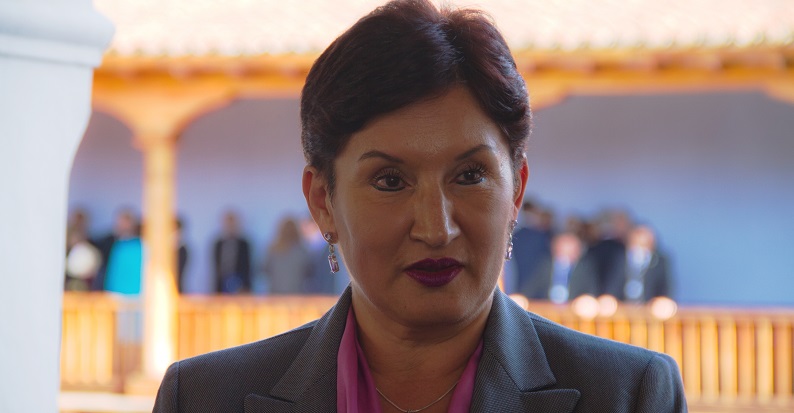-
28 August 2014
Category : Interview
“EUROsociAL helps us design public policies to address problems in our countries”
Interview with Thelma Aldana, Attorney General of the Republic of Guatemala, Head of the Public Prosecutor's Office.

The Attorney General of the Republic of Guatemala and Head of the Public Prosecutor’s Office, Thelma Aldana, opened the Second Annual EUROsociAL Programme Meeting in Antigua, Guatemala. Taking advantage of her presence, we asked her to answer our questions about the work of EUROsociAL in the country, and specifically about the cooperation between the European Union and Latin America in the eradication of violence against women.
-. What would you highlight about the cooperation between the European Union and Latin America and, specifically, that of EUROsociAL in Guatemala?
-. The support of the EU and EUROsociAL is extremely valuable for my country and for the different States of Latin America because we have weight in social cohesion and, among other issues, the fight against poverty. The joining of the forces of the different Latin American nations with the cooperation of EUROsociAL, from its methodology of best practices and knowledge transfer, helps us design public policies that address the problems in our countries.
-. At this Programme Meeting, the fight against gender violence has an important role. You, as the Attorney General of the Republic, are very familiar with the policies designed to end this social scourge. What can you tell us about this?
-. Whenever I have the opportunity to speak publically, I remind people that Guatemala, unfortunately, is number two in the world in terms of gender violence and that, although important efforts have been made to incorporate women into the economic, political and social orders, we still have an outstanding debt to the women of our countries, especially those of Guatemala.
-. What progress is being made in Guatemala?
-. In 2008 Guatemala approved the Law Against Femicide and Other Forms of Violence Against Women. As a result of the entry into force of this Law, femicide and sexual, psychological and economic violence against women were classified as crimes. It marks a milestone in this country’s history, a before and after, because before 2008, violence against women was seen as natural, as a very minor and simple infraction that was not judged in the country’s courts. After 2008, specifically in 2010, Guatemala promoted specialized justice with a focus on gender by creating courts specialized in femicide and violence against women, as well as prosecutors’ offices for women’s issues, also specialized in criminal investigation of these crimes.
-. How is the work with the European Union to join forces in this struggle coming along?
-. We hold various meetings with Latin American countries, and we share experiences and best practices to fight for the women of our countries as a block and, of course, we count on the support of the European Union. This support in the particular case of Guatemala is handled through the coordinating agency for modernization of the justice sector, which is made up of the Judicial Body, the Judiciary, the Public Prosecutor’s Office, the Ministry of Governance and the Institute for Public Criminal Defence, through a grant to each of these institutions which also includes an axis for combating violence against women.
-. How much is left to be done?
-. We have a long road ahead of us for the women of our countries to have a life free of violence and a life project that allows them to act in society as citizens, remembering that respect for the human rights of women is another face of democracy.
The views and opinions expressed in this blog are the sole responsibility of the person who write them.






